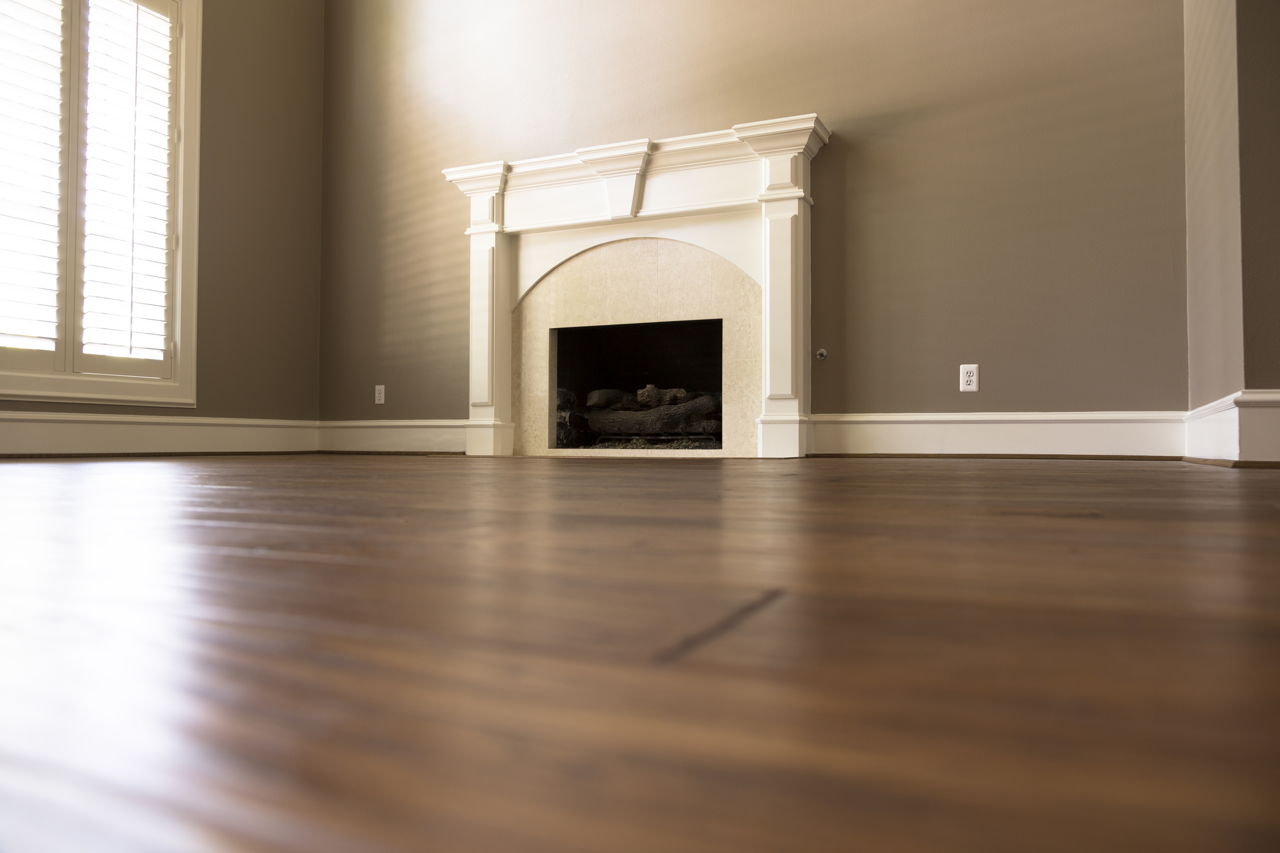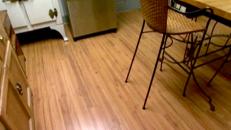Imagine this: you’re finally ready to put your house on the market after years of enjoying its cozy, well-worn charm. You’ve meticulously cleaned every surface, decluttered each room, and painted the walls a neutral shade to appeal to potential buyers. But there’s one thing that’s giving you pause – the laminate flooring you lovingly installed a few years ago. You’ve heard whispers that laminate flooring might not be the best choice for home resale, and suddenly, a nagging doubt creeps in: will it actually hurt your home’s value?

Image: decordezine.com
It’s a valid concern. While laminate flooring offers practicality and affordability, it has its own set of considerations when it comes to selling your home. The truth is, it’s not a simple yes or no answer. The impact of laminate flooring on home value is a complex one that depends on several factors. In this article, we’ll dive into the nuances of laminate flooring and its effect on your home’s marketability.
The Impact of Laminate Flooring on Home Value
Laminate flooring, with its durability, affordability, and wide range of styles, has gained popularity as a popular choice for homeowners. However, when it comes to selling your home, the perception of laminate flooring within the real estate market can be a double-edged sword.
Laminate flooring’s appeal lies in its cost-effectiveness and ease of maintenance. It’s significantly less expensive than hardwood, making it a desirable choice for budget-minded homeowners. Its durability also makes it practical for families with young children or pets, as it holds up well against everyday wear and tear.
Understanding the Factors Affecting Perception
The impact of laminate flooring on a home’s value is determined by a myriad of factors, including the quality of the installation, the overall condition of the flooring, and the prevailing market preferences.
Quality of Installation: Properly installed laminate flooring can enhance a home’s appearance. A professional installation ensures a seamless and aesthetically pleasing finish, contributing to the overall visual appeal. However, poorly installed laminate flooring can result in uneven surfaces, gaps, and noises that detract from the home’s value.
Condition and Appearance: As with any flooring type, the condition and appearance of laminate flooring play a critical role. Laminate flooring that looks aged, scratched, or faded can create a negative perception. Similarly, laminate flooring with noticeable gaps or poorly matching panels can lower a home’s value. Maintaining the flooring in good condition is key to maximizing its impact.
Market Trends and Preferences: Trends in real estate preferences vary, and what’s well-received in one market might not be as desirable in another. In some markets, buyers are willing to overlook laminate flooring if the home offers other attractive features. However, in areas where hardwood floors are highly valued, laminate flooring may not be seen as a positive feature.
Optimizing Your Home’s Marketability with Laminate Flooring
Despite the potential drawbacks, several strategies can help you mitigate the effect of laminate flooring on your home’s value.
High-Quality Installation: Invest in a professional installation to ensure a seamless and high-quality finish. A well-installed laminate floor will look more polished and enhance the overall aesthetics of your home.
Maintain the Appearance: Regularly clean and maintain your laminate flooring to keep it looking fresh and new. This will help to preserve its appeal and prevent it from becoming a negative factor for potential buyers.
Highlight Positive Features: While you can’t change the material itself, you can highlight other attractive features of your home. Focus on the home’s overall condition, curb appeal, and other desirable elements that can overshadow the laminate flooring.
Consider Upgrades: For a more substantial upgrade, consider replacing the laminate flooring with hardwood if you have the budget. However, if replacing is not feasible, a simple refinishing or cleaning can significantly improve the appearance and make it more appealing.

Image: www.hgtv.com
Tips and Expert Advice
Real estate agents often suggest approaching the issue of laminate flooring realistically. While it may not be as desirable as hardwood, it doesn’t automatically mean your home will be undervalued. The key is to position the flooring appropriately.
Instead of pretending it’s something it’s not, be upfront with potential buyers about the flooring material. You can even highlight its advantages, such as its durability and affordability. Showcase the flooring’s condition and ensure it’s clean and well-maintained. Ultimately, honesty and transparency go a long way in mitigating any negative perceptions.
FAQs about Laminate Flooring and Home Value
Q: Will laminate flooring always hurt my home’s value?
A: Not necessarily. Many factors influence a home’s value, and laminate flooring alone isn’t a deal-breaker. Factors like installation quality, condition, and market trends are equally important.
Q: Should I replace laminate flooring before selling my home?
A: It depends on the condition of the flooring, market trends, and your budget. If the flooring is well-maintained and looks good, it may not be necessary to replace it. However, if it’s damaged or significantly outdated, replacing it could improve your home’s marketability.
Q: What are some alternatives to replacing laminate flooring?
A: Many alternatives can make your laminate flooring look more appealing. Consider refinishing, cleaning, or painting the flooring to refresh its appearance.
Does Laminate Flooring Lower Value Of Home
Conclusion
While laminate flooring can be a practical and affordable flooring option for homeowners, its impact on home value is nuanced. The key to navigating this issue is understanding the factors that affect buyer perceptions, maintaining the flooring in good condition, and communicating honestly with potential buyers.
Do you have any questions or other insights about laminate flooring and home value? Share your thoughts in the comments below!





